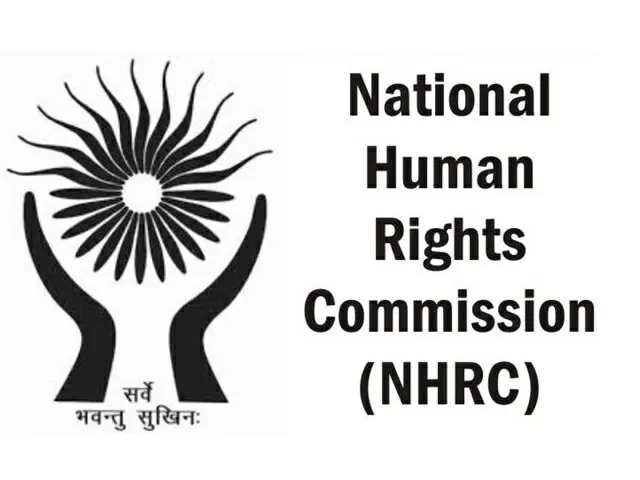Introduction
National Human Rights Institutions (NHRIs) are independent organisations established to protect and promote human rights within a country’s jurisdiction. They mediate between the state and its citizens, ensuring accountability for human rights violations and fostering a culture of respect for fundamental freedoms. With their unique position as quasi-governmental entities, NHRIs are instrumental in holding states accountable for their commitments under international human rights law. This paper explores the multifaceted role of NHRIs in promoting accountability, examining their mandates, functions, challenges, and impact.
Mandates and Functions of NHRIs
NHRIs derive their mandates from national constitutions, statutory laws, or executive orders. The Paris Principles, adopted by the United Nations General Assembly in 1993, provide the international benchmark for their establishment and functioning. These principles emphasize independence, pluralism, and a broad mandate for human rights protection and promotion.
Key functions of NHRIs include:
- Monitoring Compliance with Human Rights Obligations: NHRIs oversee state compliance with international human rights treaties. They review legislation, policies, and practices to ensure alignment with human rights norms.
- Receiving and Investigating Complaints: Many NHRIs are empowered to receive complaints from individuals or groups regarding human rights violations. They conduct investigations, recommend remedies, and, in some cases, initiate legal proceedings.
- Advising Governments: NHRIs provide expert advice to governments on human rights issues, including recommendations for legislative or policy reforms.
- Raising Awareness and Education: Through public campaigns, training, and publications, NHRIs promote human rights awareness and education among citizens and government officials.
- Engaging with International Mechanisms: NHRIs participate in the Universal Periodic Review (UPR) process, submit shadow reports to treaty bodies, and collaborate with regional and international human rights organizations.
Promoting Accountability Through NHRIs
NHRIs play a crucial role in fostering accountability by:
- Investigative Powers: NHRIs investigate alleged human rights violations, including abuses by state actors such as law enforcement agencies. For instance, the National Human Rights Commission of India frequently investigates cases of custodial torture and extrajudicial killings, ensuring transparency and accountability.
- Advocating for Justice and Reparations: By addressing grievances and recommending reparations, NHRIs help victims seek justice. They also push for systemic changes to prevent recurrence.
- Strengthening Legal Frameworks: NHRIs’ recommendations often lead to amendments in laws and policies, creating stronger mechanisms for accountability. For example, the South African Human Rights Commission has influenced significant policy reforms to address racial inequality and discrimination.
- Public Reporting: NHRIs publish annual reports and special investigations that highlight human rights violations and assess government performance. These reports are critical tools for transparency and accountability.
- Facilitating Dialogue: Acting as a bridge between civil society, victims, and the government, NHRIs facilitate dialogue to address systemic issues and promote collaborative solutions.
Case Studies
- National Human Rights Commission of India (NHRC): The NHRC of India has played a pivotal role in investigating cases of police brutality, child labor, and trafficking. By bringing these issues to public attention, it has compelled authorities to take corrective actions.
- Kenya National Commission on Human Rights (KNCHR): The KNCHR actively documented human rights violations during Kenya’s 2007-2008 post-election violence. Its findings and recommendations were instrumental in initiating judicial reforms and prosecuting perpetrators.
- Australian Human Rights Commission (AHRC): The AHRC’s work on indigenous rights and its inquiry into the treatment of asylum seekers have significantly influenced public discourse and policy-making in Australia.
Challenges Faced by NHRIs
Despite their critical role, NHRIs encounter several challenges that hinder their effectiveness:
- Political Interference: Governments may undermine NHRIs by limiting their funding, influencing appointments, or disregarding their recommendations.
- Resource Constraints: Many NHRIs operate with inadequate financial and human resources, restricting their capacity to investigate cases and conduct outreach programs.
- Lack of Enforcement Powers: While NHRIs can recommend actions, they often lack the authority to enforce decisions, relying on state cooperation for implementation.
- Hostile Environments: In authoritarian regimes or conflict zones, NHRIs face threats, intimidation, and lack of access, limiting their ability to function effectively.
- Public Perception: In some cases, NHRIs struggle to gain public trust, particularly when perceived as aligned with government interests.
Enhancing the Effectiveness of NHRIs
To strengthen their role in promoting accountability, the following measures are recommended:
- Ensuring Independence: Legal and institutional safeguards must be in place to guarantee NHRIs’ independence from political influence.
- Adequate Resources: Governments should allocate sufficient funding and support to enable NHRIs to fulfill their mandates effectively.
- Capacity Building: Regular training and access to global best practices can enhance the investigative and advisory capabilities of NHRIs.
- Strengthening Legal Mandates: Expanding the legal powers of NHRIs, including the ability to enforce recommendations, can improve accountability outcomes.
- Public Engagement: Building trust through community outreach and transparent processes can enhance the credibility and impact of NHRIs.
Conclusion
NHRIs are vital instruments for promoting accountability and safeguarding human rights. By monitoring state actions, addressing grievances, and advocating for systemic reforms, they contribute to building equitable and just societies. However, their effectiveness depends on their independence, resources, and ability to navigate political and operational challenges. Strengthening NHRIs and ensuring their robust functioning is essential for advancing human rights and fostering accountability worldwide.
Contributed by Jatin Kakkar (Legal Intern)

